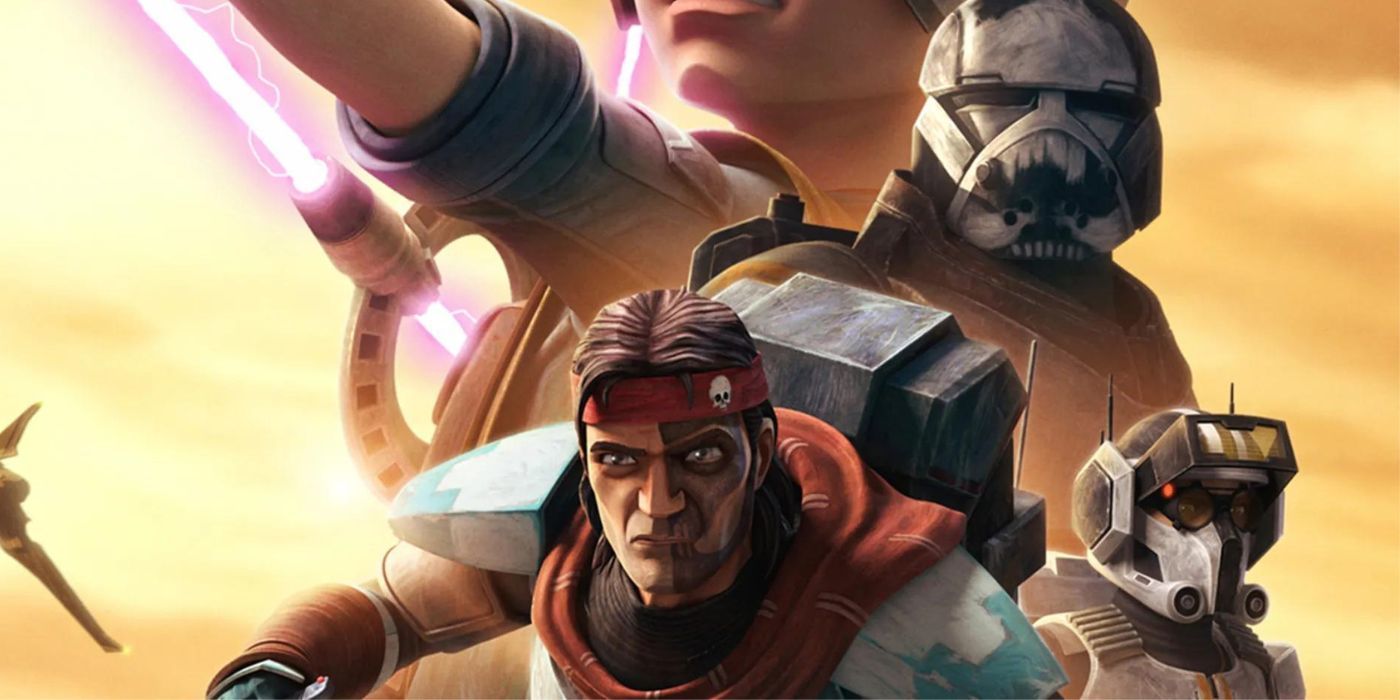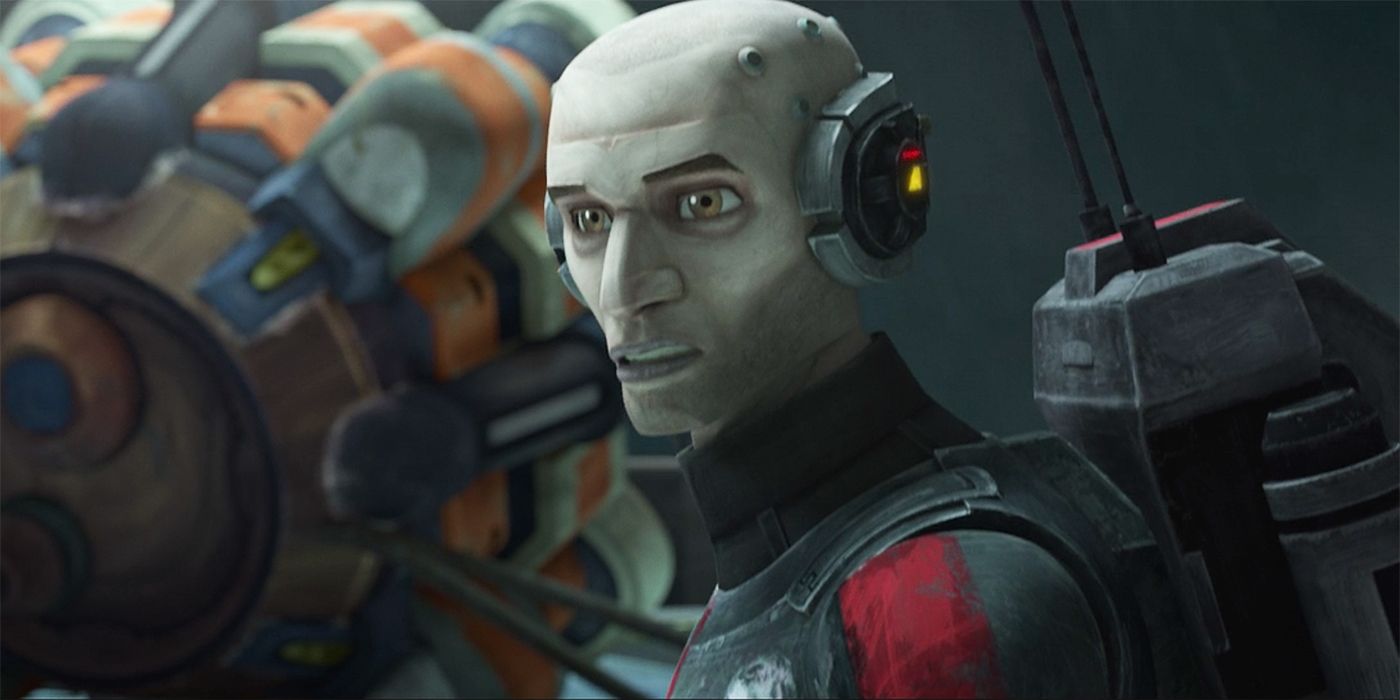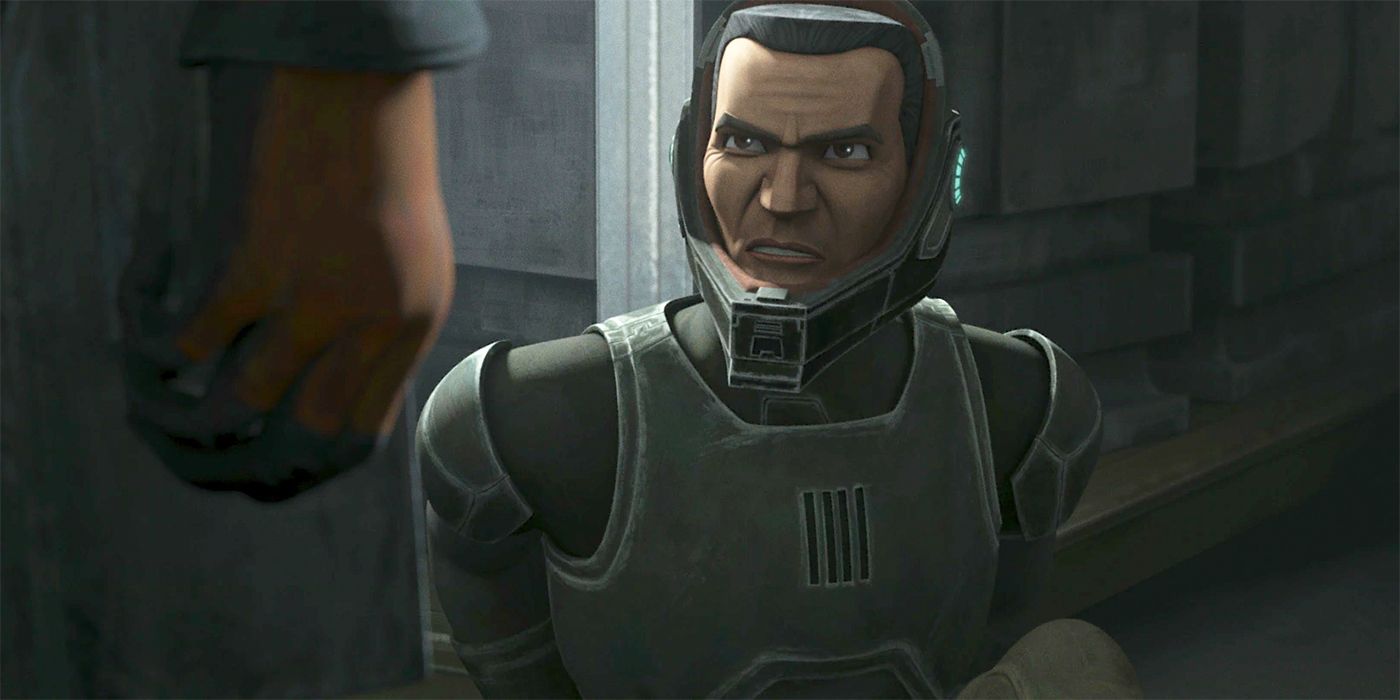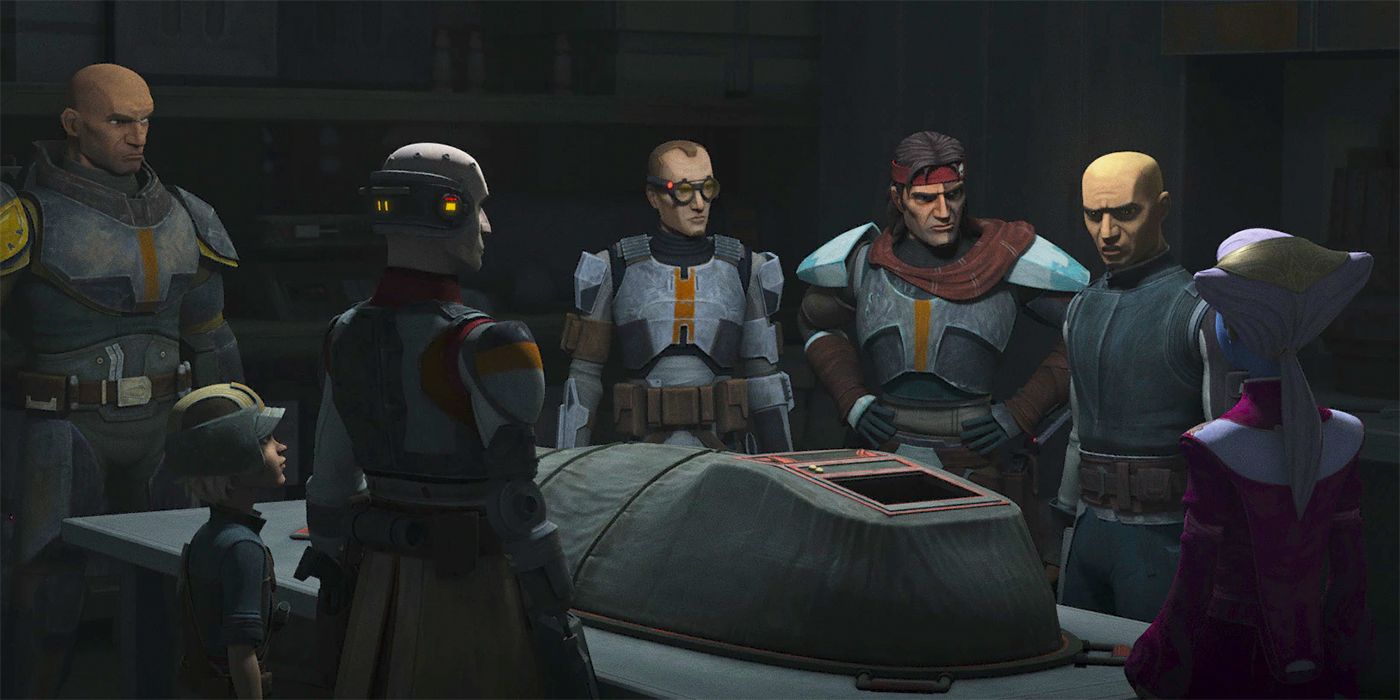Like The Clone Wars that came before it, The Bad Batch is headed for tragedy. Given its place in the timeline and what we already know of the fate of the Clone Army, the ending of the story of Clone Force 99 is not likely to be a happy one. While the individual Clones that make up the team might survive to fight another day by the time the show finishes, there’s no chance that the show’s larger narrative about the rise of the Empire will end any way other than poorly. And The Bad Batch is at its best when it chooses to highlight this inevitable tragedy.
Knowing the Ending of the Clones Doesn't Make the Story Worse, It Makes It Better
Due to its typically nonlinear release strategy, Star Wars as a franchise is very familiar with telling stories that we already know the ending of. The Prequel Trilogy (and by extension The Clone Wars) chronicle the fall of the Republic, the rise of the Emperor and his Empire, and the corruption of Anakin Skywalker into Darth Vader (LINK). Anyone familiar with the Original Trilogy knows where that story is headed, and that inevitable end is part of what makes the narrative of that era of Star Wars so compelling. Even more recent offerings, like The Mandalorian or The Book of Boba Fett, exist in a period of relative peace that we know won’t last. Star Wars has consistently shown that it thrives in this space of dramatic irony, leaning into what the audience already knows will happen to make the story it's telling more compelling.
The Bad Batch, despite being set during a period of Star Wars history that hasn’t already been thoroughly explored by the movies or shows, has the potential for a lot of this dramatic irony. The audience knows that the story of the Clone Army can only end in tragedy. Even a few years out from the current setting of the show, the Clone Army has been seemingly completely replaced with Stormtroopers (as seen in the Star Wars Jedi games and the Obi-Wan Kenobi series). Every other major piece of Star Wars storytelling set during the reign of the Empire highlights the constant presence and threat of Stormtroopers, not Clones. Even as Clone Force 99 dutifully set their blasters to stun at every opportunity to not harm their brothers, we know that it won't make a difference in the long run.
Even on a smaller scale, many of the stories The Bad Batch chooses to tell are fated to end in tragedy. Fans of Star Wars: Rebels will know that within 10 or so years from the events of The Bad Batch Season 2, Captain Rex (Dee Bradley Baker) will have retired from fighting against the Empire and gone into hiding. This bodes poorly for his efforts to undermine the Empire and save his Clone brothers and indicates that his successes will be few and far between. Other side characters, like the Syndulla family in Season 1’s “Devil’s Deal” and “Rescue on Ryloth,” are also fated for tragedy (Hera Syndula’s (Vanessa Marshall) mother Eleni (Ferelith Young) will die in the resistance movement that Clone Force 99 helped to save). But despite the rich potential of these stories, they're few and far between. And that hurts the show.
Tragedy Makes 'The Bad Batch' Better
The Bad Batch’s biggest struggle has been its often aimless storytelling, but that issue is not present when the show leans into tragedy. In Season 1, episodes like the season premiere “Aftermath,” the stand-alone episode “Replacements,” and the two-part finale “Return to Kamino” and “Kamino Lost,” put the focus directly on the way the Empire was choosing to treat the Clones that had served the Republic loyally for years. Each episode moves that overarching story forward in interesting ways, focusing on the impact of events like Order 66, the training of the earliest Stormtroopers, and the destruction of the cloning facilities on Kamino. These are among the best episodes the first season has to offer, but the recent two-part mid-season event, comprised of the episodes “The Clone Conspiracy” and “Truth and Consequences,” has kicked things up a notch.
This two-part story takes its cues from some of the best episodes of The Clone Wars, pitting its characters against a challenge that we the audience know they can’t fully overcome. The episodes follow the Pantoran Senator Riyo Chuchi (Jennifer Hale) as she slowly discovers that Admiral Rampart (Noshir Dalal) has been working to replace the Clone Army and covering up his violent acts against them. (LINK) Along the way, she enlists Clone Force 99 to recover proof of Rampart’s role in the destruction of Tipoca City on Kamino. She hopes to use this as political leverage to stop the Empire from passing a recruitment bill that will begin the process of replacing the Clones with an army of enlisted Stormtroopers. Even before we reach the end, we know that their effort can’t succeed — Stormtroopers are an inevitability.
There's Still Room for Improvement For The Bad Batch
But it’s still compelling to watch Clone Force 99 and their allies work to protect their fellow Clones and undermine the Empire. In the same way as the Prequel Trilogy and The Clone Wars that came before it, The Bad Batch derives the tension of these episodes from our knowledge that this adventure will somehow go wrong. “The Clone Conspiracy” and “Truth and Consequences” rely on two facts: the audience knows that the Imperial Recruitment Bill will pass and that we don’t know the ultimate fates of Clone Force 99. The closer they come to altering events in any way we know is impossible, the more likely it is that they might die or suffer an even worse fate to make sure the story goes the way we know it does. While the show’s stand-alone episodes often struggle to make us feel like the characters we’re following are in any real danger, the ones that lean into the certainty of the rise of the Empire and the uncertainty of our protagonists’ fates find the sweet spot for an exciting viewing experience.
Going forward, it would be a wise choice for The Bad Batch to lean into the inherent tragedy of its story even more than it already does. For example, now that Echo has left to help Rex fight back against the Empire, there’s room for more episodes to branch off from the core group and explore this side of the story, much like Season 1's “Replacements” and Season 2's “The Solitary Clone” focus on Crosshair’s journey as a loyal soldier of the Empire. Not only would this add some much-needed variety to the show, but it would also make it far more compelling. The Bad Batch is set during a fascinating era of the Star Wars galaxy, and it’s a shame it’s not taking more advantage of that.




